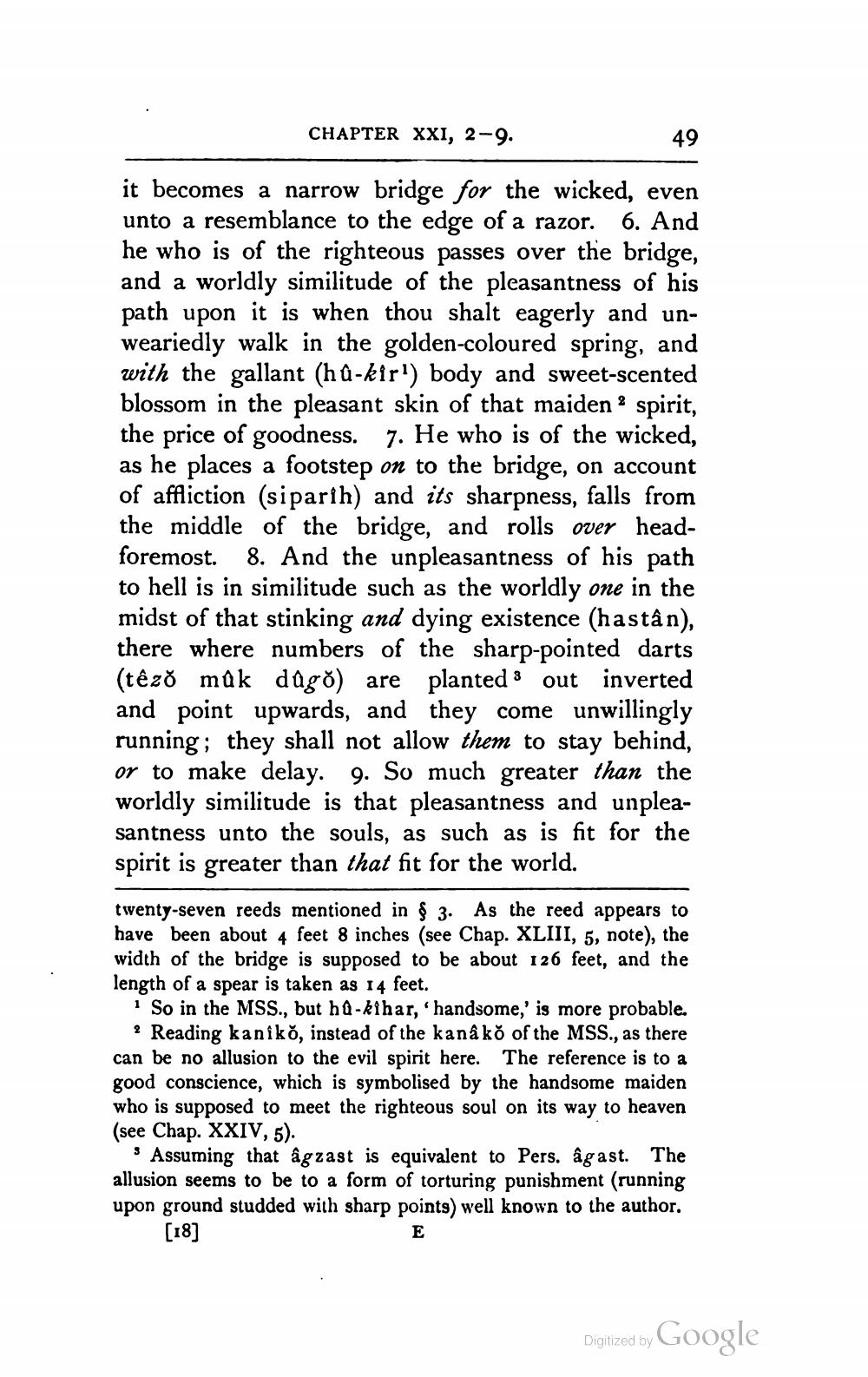________________
CHAPTER XXI, 2-9.
49
it becomes a narrow bridge for the wicked, even unto a resemblance to the edge of a razor. 6. And he who is of the righteous passes over the bridge, and a worldly similitude of the pleasantness of his path upon it is when thou shalt eagerly and unweariedly walk in the golden-coloured spring, and with the gallant (hû-kir1) body and sweet-scented blossom in the pleasant skin of that maiden spirit, the price of goodness. 7. He who is of the wicked, as he places a footstep on to the bridge, on account of affliction (si parth) and its sharpness, falls from the middle of the bridge, and rolls over headforemost. 8. And the unpleasantness of his path to hell is in similitude such as the worldly one in the midst of that stinking and dying existence (hastân), there where numbers of the sharp-pointed darts (têzŎ mûk dûgo) are planted out inverted and point upwards, and they come unwillingly running; they shall not allow them to stay behind, or to make delay. 9. So much greater than the worldly similitude is that pleasantness and unpleasantness unto the souls, as such as is fit for the spirit is greater than that fit for the world.
twenty-seven reeds mentioned in § 3. As the reed appears to have been about 4 feet 8 inches (see Chap. XLIII, 5, note), the width of the bridge is supposed to be about 126 feet, and the length of a spear is taken as 14 feet.
1 So in the MSS., but hû-kihar, 'handsome,' is more probable. 2 Reading kanîko, instead of the kanâko of the MSS., as there can be no allusion to the evil spirit here. The reference is to a good conscience, which is symbolised by the handsome maiden who is supposed to meet the righteous soul on its way to heaven (see Chap. XXIV, 5).
Assuming that âgzast is equivalent to Pers. âgast. The allusion seems to be to a form of torturing punishment (running upon ground studded with sharp points) well known to the author.
[18]
E
Digitized by
Google




